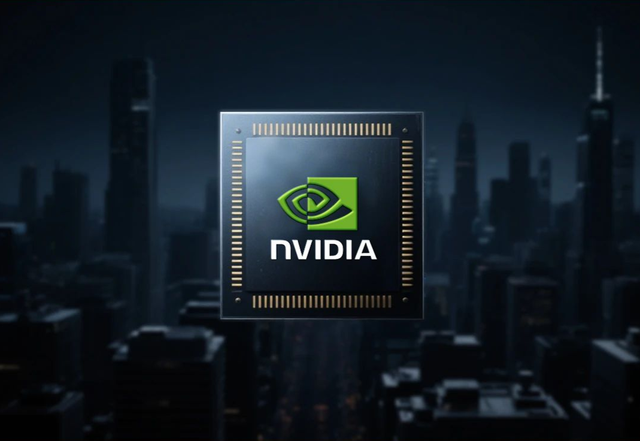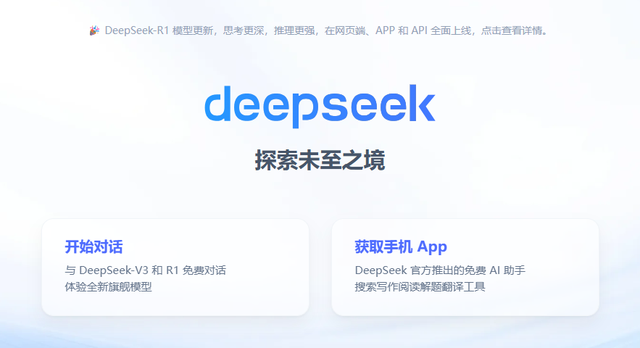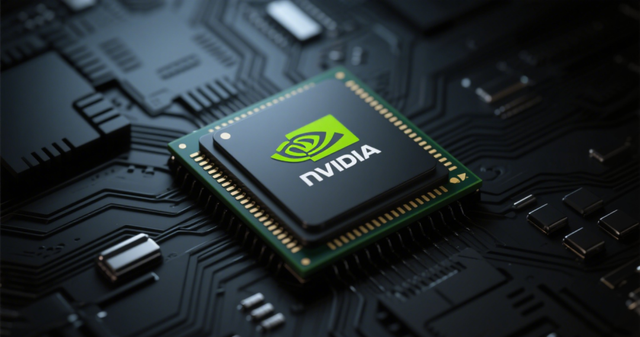Does the H20 Chip's Backdoor Risk Become NVIDIA's Achilles' Heel?
![]() 08/05 2025
08/05 2025
![]() 703
703

Source: Byte Source
NVIDIA and its CEO, Jen-Hsun Huang, have once again found themselves in the spotlight following a summons from China's Cyberspace Administration.
On July 31, the Cyberspace Administration of China summoned NVIDIA over security concerns regarding potential backdoors in the H20 computing power chip vulnerabilities.
Just half a month prior, Jen-Hsun Huang was in Beijing, making a grand announcement that the H20 chip, tailored for the Chinese market, would resume sales, aiming to capitalize on the vast Chinese large model market. However, in the blink of an eye, this chip was labeled with potential "tracking and positioning" and "remote shutdown" backdoor risks.
If the situation worsens, Jen-Hsun Huang may have to make his fourth trip to China this year.
For Jen-Hsun Huang, a seasoned strategist, this might be just another move in his intricate game. His true concern extends far beyond a mere summons; he fears that the model sustaining his trillion-dollar market value could grind to a halt.
At this juncture, Jen-Hsun Huang fears most that Liang Wenfeng and others in distant China will lose their competitive spirit.
01
The Balancing Act of the Man in Leather Jacket
"I'm not balancing anything," Jen-Hsun Huang told a Caijing reporter. It's a textbook-worthy statement, but its hollowness is alarming.
His true balancing act lies not in words but in his strategic investments.
"The investment location in the north is very attractive, and the size of the hinterland is perfect, very suitable for NVIDIA," he candidly admitted after speaking at an event for AMD CEO Lisa Su.
This move was calculated, precise, and effective. It placates Washington politicians watching supply chain security closely while subtly signaling to the Chinese mainland market: I'm not leaving; I'm getting closer.
This is Jen-Hsun Huang.
One moment, he's meeting the U.S. President in Washington, reaffirming NVIDIA's commitment to job creation in the U.S. and ensuring the country's global AI leadership. He even casually mentions:
"I told President Trump a week before coming to China that I would be visiting. Trump was happy to celebrate NVIDIA's $4 trillion market value milestone and wished me a good trip."
The next, he's donning a Tang suit, shedding his iconic black leather jacket, to attend various public events. Jen-Hsun Huang once even donned a floral jacket and awkwardly but charmingly danced yangko at the company's annual meeting.
He needs these gestures. Just half a month ago, on July 14, he braved Beijing's scorching sun, wearing his leather jacket, and appeared on various cameras. Little did he know he would be summoned by the Cyberspace Administration of China just a fortnight later.
The next day, July 15, Jen-Hsun Huang announced the resumption of H20 chip sales to China, claiming it would greatly alleviate the "computing power bottleneck" in the Chinese market. These words seemed intentionally directed at DeepSeek founder Liang Wenfeng. Rumors suggest DeepSeek's R2 model was delayed due to the H20 sales ban, causing a 70% drop in website traffic as users flocked to competitors like Doubao.

Screenshot from DeepSeek's official website
Jen-Hsun Huang is trying to mend a link in his vast business model, portraying himself as an indispensable global technology hub courted by all. He knows better than anyone that NVIDIA's technology scarcity is its survival foundation.
This computing power scarcity is his strongest bargaining chip and passport between the two superpowers.
Therefore, when news of the Cyberspace Administration's summons broke and the H20 chip was exposed to potential "tracking and positioning" and "remote shutdown" backdoor risks, Jen-Hsun Huang might have felt a headache but certainly not panic.
This is just another move in the game.
02
The Top-Level Open Strategy of the Computing Power "Arms Dealer"
NVIDIA's core business has never been merely hardware sales.
It's selling computing power, a strategic resource shaping the future, akin to oil.
And China is the most indispensable and dramatic link in this computing power narrative.
The data speaks volumes. In fiscal year 2025, the Chinese mainland and Hong Kong markets contributed $17.1 billion in revenue to NVIDIA, accounting for 13.1% of its total revenue, despite years of decline due to tightening U.S. export controls.
Even more striking data comes from the supply chain. Some analysts estimate that in 2024, NVIDIA shipped between 600,000 and 800,000 H20 series chips to China. In the same period, the top domestic AI chip shipments were approximately 300,000 to 400,000 units.
In other words, over 60% of the blood flowing through China's AI servers is NVIDIA green.
ByteDance, Tencent, Alibaba, and other Chinese internet giants are significant buyers of NVIDIA's H20. In a late-2024 report, Omdia listed ByteDance and Tencent as the second and third-largest buyers of NVIDIA's Hopper series chips globally, each procuring 230,000 units, second only to Microsoft.
But these are just appearances.
Jen-Hsun Huang's true open strategy is actively shaping a dynamic, escalating competition model. He needs China, especially companies like DeepSeek, acting as "catalysts."
DeepSeek's biggest industry impact is using "castrated" infrastructure to drive down large model prices to the floor, with training costs one-twentieth the industry average, launching a near-barbaric "low-cost harassment" campaign against OpenAI and Google across the ocean.
This is precisely the script Jen-Hsun Huang loves to see, forming a perfect closed loop:
China's Catch-Up: Chinese companies led by DeepSeek, utilizing NVIDIA's "special edition" chips (like H20), are fiercely catching up with top U.S. models with extreme cost-effectiveness.
U.S. Anxiety: Giants like OpenAI and Google feel pressure from China. To maintain the technological gap and market position, they must accelerate iteration and invest heavily in R&D.
Top-Level Demand: This anxiety translates into huge orders for NVIDIA's top-tier, most expensive chips (like H100, B200, and future X100), boosting profits and stock prices.

NVIDIA chip concept map | Created by Byte Source
"Special Edition" Feedback: After earning a fortune, NVIDIA leisurely "downgrades" these top-tier chip technologies, packaging them as "China special editions" like H20 and B30 to sell to Chinese companies, allowing the catch-up game to continue.
U.S. Commerce Secretary Gina Raimondo almost officially endorsed this script.
"The H20 is NVIDIA's 'fourth-best chip,' slower than those used by American companies. The U.S. hopes to 'make Chinese developers reliant on American technology stacks.'"
Jen-Hsun Huang will never admit to this "hierarchy theory." When asked, he plays a round of tai chi, cleverly turning "castration" into "adaptation": "I have many 'children,' and I won't rank them. These products are designed for different scenarios. One of H20's advantages is its large and efficient system memory bandwidth. Innovative architectures like DeepSeek, Qwen, and Kimi are very suitable for H20."
This trans-Pacific arms race in computing power is NVIDIA's true growth engine. The U.S. handles technological breakthroughs, while China focuses on speed catch-up. This mutual pursuit and upward spiral continuously creates astronomical demand for NVIDIA's computing power.
Therefore, he needs Liang Wenfeng and others to keep fighting, constantly pressuring U.S. tech giants with their extreme cost-effectiveness strategy. To some extent, NVIDIA is partly responsible for the current large model competition frenzy.
Selling graphics cards might be Jen-Hsun Huang's surface work; maintaining this endless war for computing power is this "arms dealer's" ultimate goal.
03
NVIDIA's "Computing Power Anxiety"
A summons can't keep Jen-Hsun Huang awake at night. His true anxiety stems from the "computing power spiral" sustaining his trillion-dollar market value, which seems to be loosening.
Jen-Hsun Huang fears not that any backdoors are found in the H20 chip but that catch-up players like DeepSeek's R2, highly anticipated and capable of causing real "damage" to top U.S. large models, don't emerge in time.
Without sufficient external pressure from China, why would OpenAI and others frantically place orders for those outrageously expensive chips?
Once global demand growth for top computing power slows, a domino effect will follow, giving competitors a prime catching-up opportunity.
That woman in a red top, also from Taiwan, China – AMD CEO Lisa Su, is closely watching the situation. Under her management, AMD is no longer just following NVIDIA. According to its financial report, in Q1 2025, AMD's revenue was $7.44 billion, a 35.9% year-on-year increase, showing strong momentum.
More importantly, its arsenal is rapidly upgrading. The upcoming MI350 series accelerators, the preview version of the MI400 series, and the accompanying ROCm 7 software stack are building an "anti-NVIDIA alliance" capable of competing with NVIDIA's CUDA ecosystem.
This alliance boasts an impressive roster.
Sam Altman, CEO of OpenAI, has publicly stated that AMD's AI chips will be used in the future. Meta is also deploying AMD's MI300 series in large quantities for the training and inference of its Llama series models.
The day after Jen-Hsun Huang announced the resumption of H20 sales, AMD immediately followed up, stating plans to restart exporting its MI308 chips to China. This AI accelerator, also tailored for the Chinese market, directly targets H20 in performance, with the intention clear: to seize the promised land originally belonging to NVIDIA.
If the "sales ban" continues, AMD will undoubtedly become the first choice for companies like DeepSeek.
After all, "the world has suffered from NVIDIA for a long time."
Besides AMD, there are challengers from China itself. Huawei's Ascend 910 series is already widely used in Chinese enterprises. Even Jen-Hsun Huang admits that Huawei has a full-stack capability ranging from chip design to system engineering and cloud services, a "very powerful capability." Any sign of weakened computing power demand will give these catch-up players valuable breathing room and overtaking opportunities.
And this will directly threaten the grand chess game Jen-Hsun Huang has laid out for the future. He has invested heavily, spending billions of dollars to build AI supercomputer centers in Taiwan, China. These investments, easily reaching tens of billions or even hundreds of billions, are all based on a core assumption: in the future world, the demand for computing power will grow exponentially without end.
If this assumption's foundation cracks due to subtle competitive landscape changes, all his forward-looking layouts may turn into huge bubbles.
Compared to walking into the Cyberspace Administration of China's meeting room, Jen-Hsun Huang fears more seeing the silence on DeepSeek's official website, the loss of fighting spirit by Liang Wenfeng and others, and the abrupt halt of the competition spiral sustaining his AI empire.






